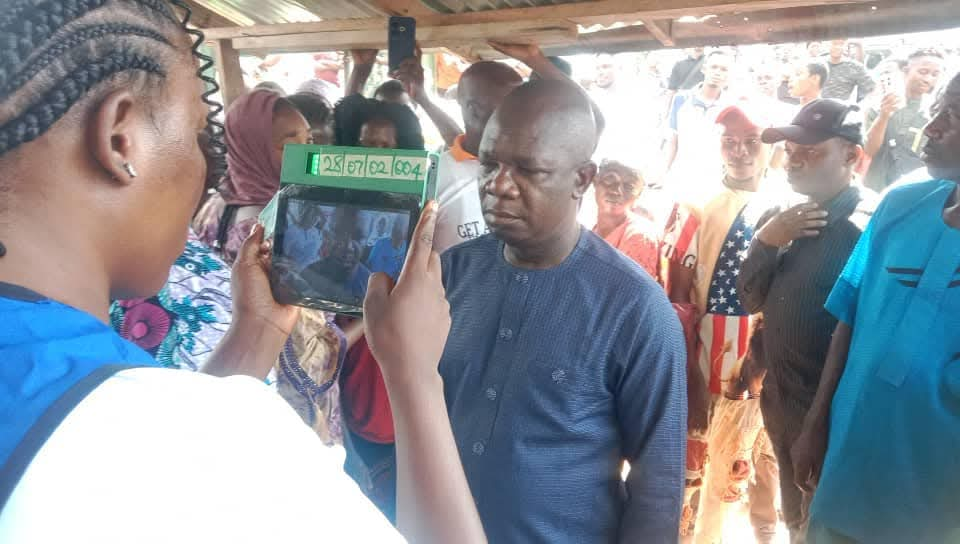It has become a fad among young West Africans, skilled and not skilled alike, to migrate to economically more developed countries in search of the fabled greener pasture. Often, they follow hazardous routes in the deserts of North Africa and the Mediterranean Sea. This disturbing phenomenon has intensified over the years, triggered by myriad crises, especially political, economic and social, that beset the region.
There have been efforts in the past to tame this ugly trend, but the problem keeps increasing as the subregional authorities hardly resolve the root causes of the crisis. Most of these youths claim to be Nigerians, especially as impersonation of the country by questionable characters makes the authentication of this claim a task.
Recently, the Parliament of the Economic Community of West African States (ECOWAS) rose to the occasion, with regional lawmakers expressing their concern over the issue and mapping out strategies to halt the trend. This was the crux of discussion at the ongoing First Ordinary Session of the ECOWAS Parliament 2024, presided over by the Speaker, Hon. Memounatou Ibrahima, in Abuja, as Members of Parliament brainstormed on possible ways to invest in the skill and capacity of West African youths and explore their potential for the benefit of the subregion.
According to the International Organisation for Migration (IOM) the dangerous journeys undertaken by migrants expose them to numerous risks, including human trafficking, exploitation, and death. IOM recorded an estimated 5,000 migrant deaths in 2023 alone. It said further that while migrants contribute to cultural exchange and diversity in host countries, they also face significant challenges in terms of integration, discrimination, and legal hurdles in their destination countries.
Despite the dangers, irregular migration towards North Africa and Europe persists. The IOM reported in 2023 that an estimated 300,000 West African migrants use perilous routes through the Sahara Desert and across the Mediterranean Sea annually.
According to the World Bank, this surge is caused by high youth unemployment rates, which stand at an average of 12.8 percent across West Africa. The National Bureau of Statistics (NBS) reported a 19.6 percent youth unemployment rate in 2023. Also, the search for higher education and vocational training that are not readily available in home countries motivates many West African youth to migrate to Europe and North America, according to the UNDP in 2021.
It has, therefore, become incumbent on the West African leaders to present structured developmental strategies to build the region’s economy and enhance political stability. In our opinion, there must be absolute political will on what should be done on economic development, job creation and conflict resolution. We believe that a comprehensive development of the solid mineral sector through value addition and investment in agricultural potential of the region will reduce the problem.
Also, poor governance coupled with corruption in high places has continued to diminish opportunities in the region. We believe that electoral corruption has compounded the crisis, as the region is now replete with leaders who are not accountable to the people, resulting in massive poverty despite the abundant resources in the region.
Regional governments can provide training, access to finance, and mentorship to encourage young people to start their own businesses. Investment in education and skills development and training programmes aligned with market needs should be made to help young people acquire the skills needed to access job opportunities in growing sectors.
Similarly, investing in sectors such as technology, renewable energy, and manufacturing has become imperative to create new job opportunities for young people. Deliberate efforts must also be made to boost Small and Medium Enterprises (SMEs) as a major source of employment. We also advocate improving infrastructure, such as transportation, energy, and telecommunications, to create jobs in the construction and maintenance sectors.
Above all, the regional bloc must make more efforts to resolve conflicts and promote peace and stability while leveraging the opportunities presented by the digital economy, such as e-commerce, digital services, and online platforms.
The Nigerian government ought to implement policies and programmes to effectively halt the trend of well-trained professionals leaving the country. In our opinion, the brain drain is not good for a country that spent huge resources to train this crop of manpower only to lose them to other countries.
What is required is a change of attitude on the part of the governing class that sees nothing wrong with the current push by otherwise its brightest and the best to look elsewhere for means of sustenance.
West África is rich in human and material resources and there is no need for its youths to be desperate to abandon the region for jobs that might not be available abroad.

 3 months ago
35
3 months ago
35















 English (US) ·
English (US) ·